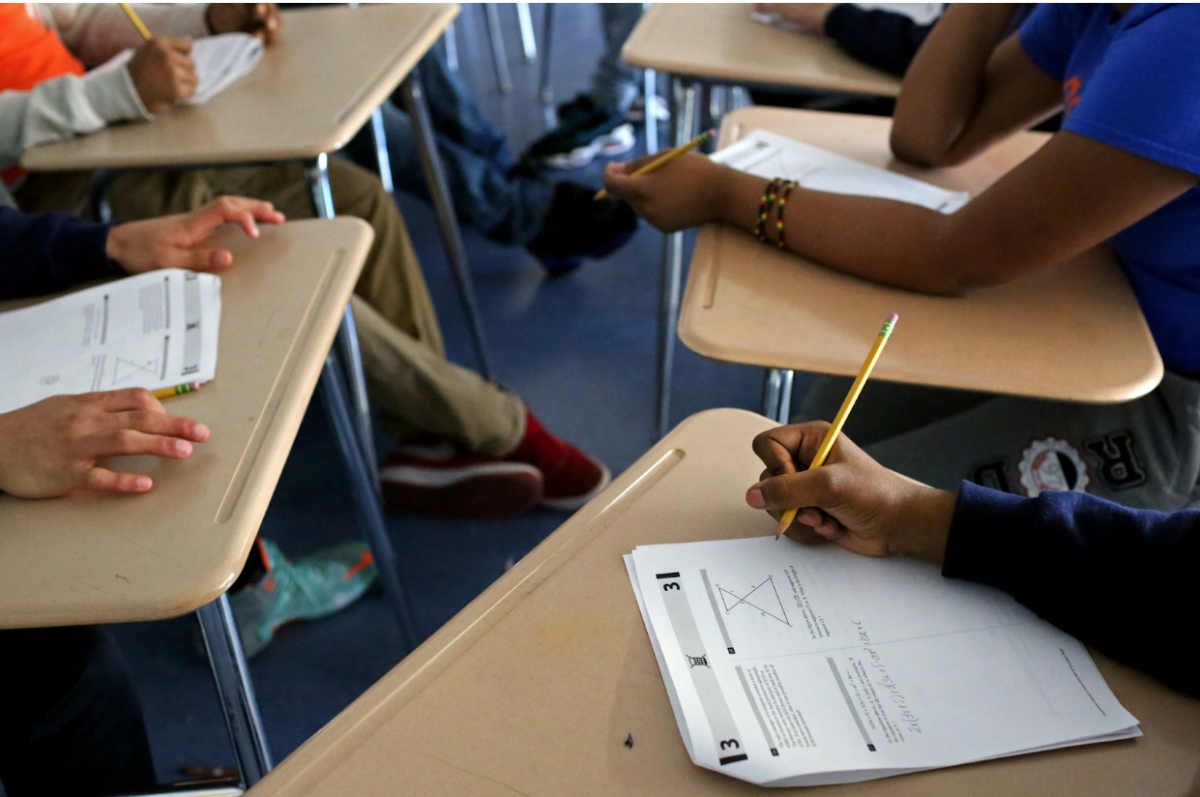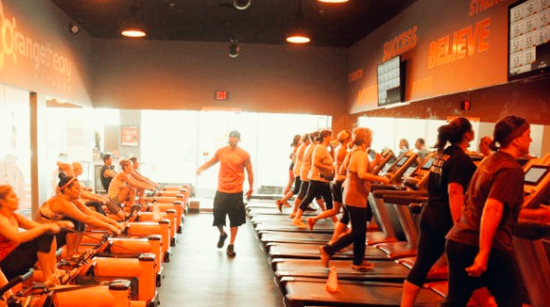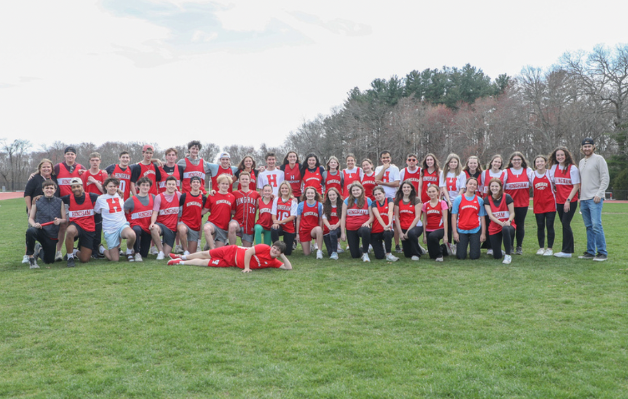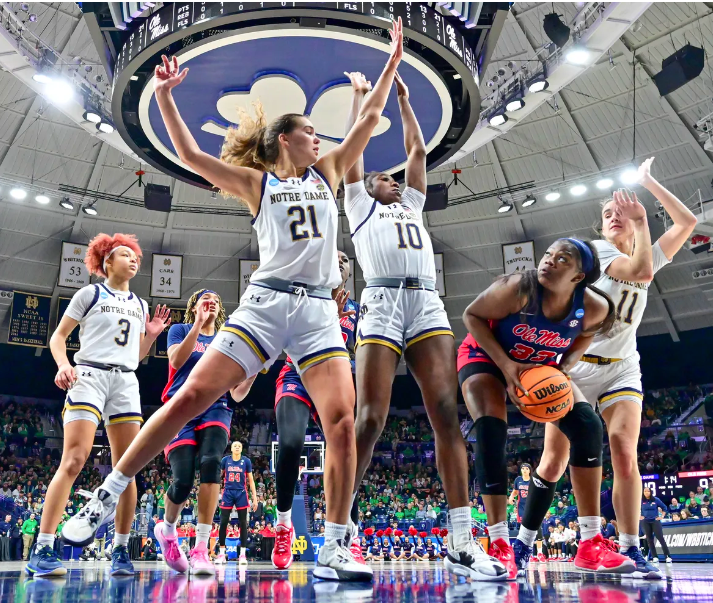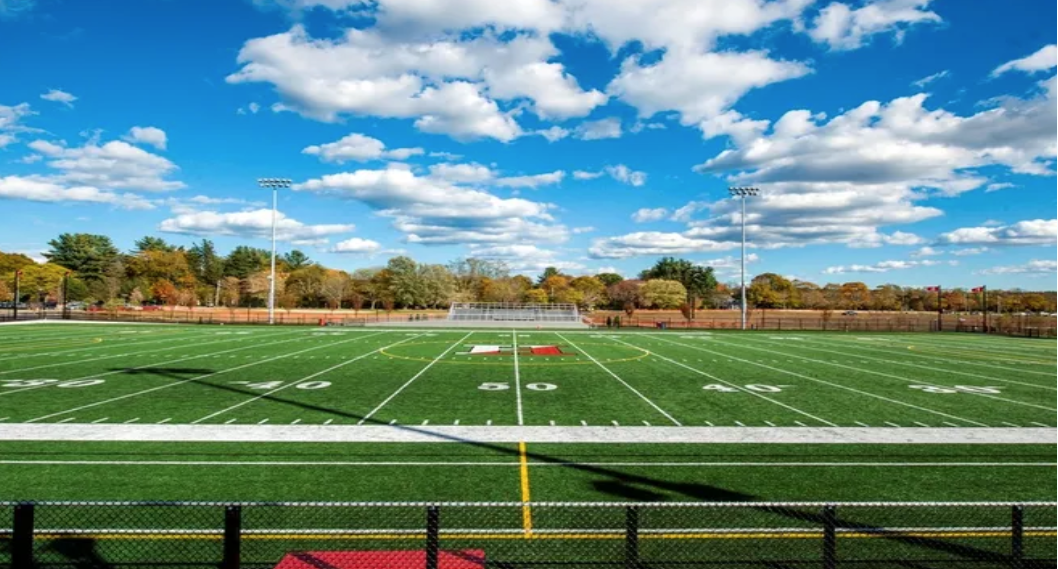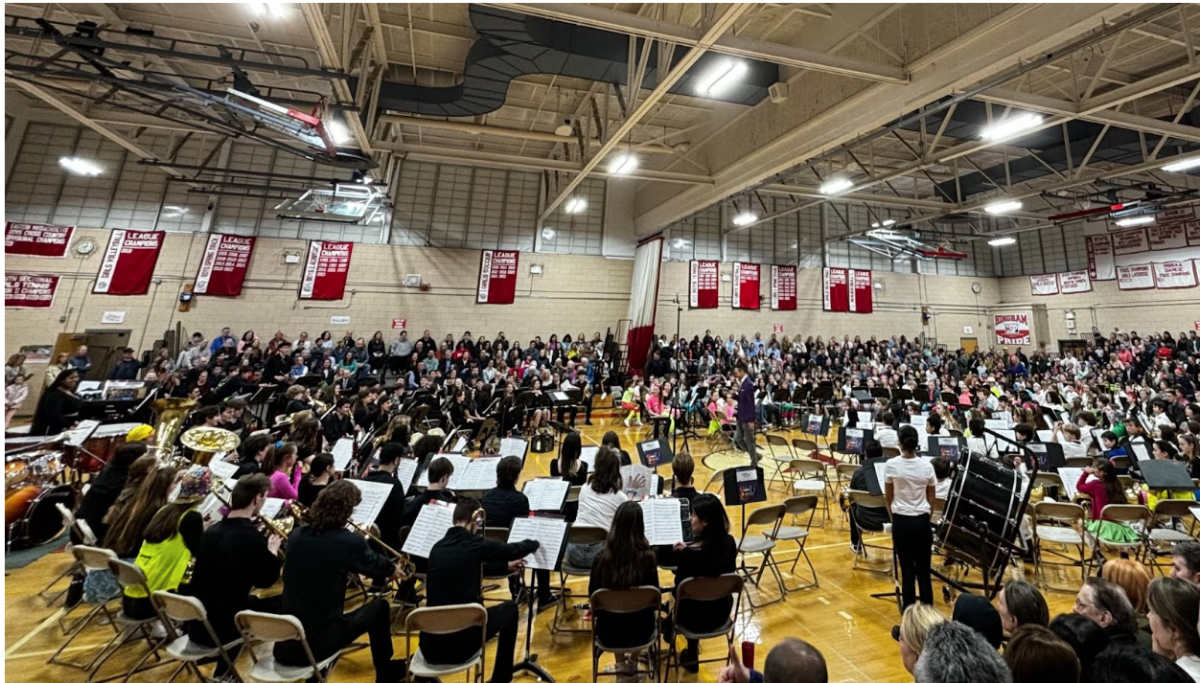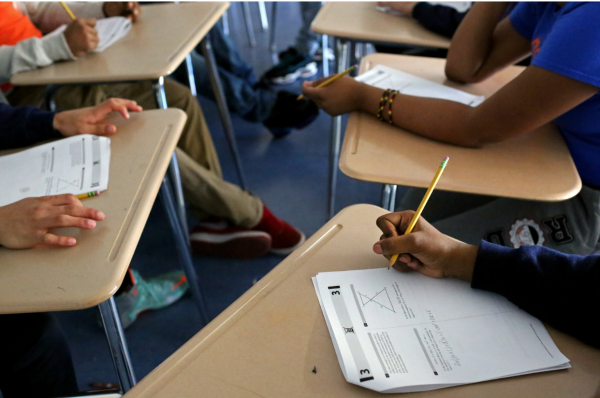Is Coffee a Necessary Evil?
Junior Eleanor Collins graciously offered her large morning coffee for a “photo-op.”
March 4, 2018
To most high school students, coffee is considered a staple in their diet. Once teenagers enter their high school years, coffee becomes less of a luxury and more of a necessity.
Despite the rules prohibiting coffee in the halls and classrooms at Hingham High, many students still find a way to make it a part of their day because they find it is the most effective way to keep them awake. Unbeknownst to the majority of students, however, coffee can have many negative impacts on developing teenagers.
According to the Mayo Clinic, anything more than 500-600mg is considered “heavy daily caffeine use.” Studies done by the same clinic reveal that adolescents consume anywhere between 60-800mg per day.
This is a very wide range that seems to strongly correlate with grade levels. After interviewing Hingham High students, it seems that every time a student advances an academic year, the amount of coffee he or she consumes advances with it.
As only a first year at Hingham High, freshman Megan Goldstein shares her opinion on coffee, “I don’t drink coffee just because I don’t like it. I think it’s okay if [students] have a little bit of coffee to wake them up, but not too much.”
Megan is right in believing that too much caffeine is not okay for adolescents. The Mayo Clinic lists some of the side effects of over caffeination as “anxiety, sleep disorders, headaches, and dehydration.”
This is important to keep in mind because the last thing high school students need on top of an increasingly difficult workload is even more anxiety and sleep deprivation.
However, it is important to remember that freshmen are not the typical recipients of late-night work loads, and are therefore not typically in danger of over caffeination.
Sophomore Schuyler Bordeau knows the struggle of staying up late doing homework and still needing to be awake in school the next day. She explains, “I definitely drink coffee and I think it’s really unfair that we have to spend our own money on chemicals just to keep us awake. It seems pretty ridiculous when you put it like that, but it’s actually reality.”
Schuyler also shares that she typically stays up until “around 1:00 am, but sometimes 2 or 3 in the morning because of sports or meetings.” She also averages around “two cups of coffee a day.”
This may seem like an exaggerated account, but the sad truth is that coffee truly is a crutch for high school students because one o’clock in the morning is a realistic and common time for students to finally be able to get to bed.
Junior year is often considered the most difficult and stressful time for any high school student, and the juniors at Hingham High are not immune to the reality of that statement.
Caroline Johannes, who is currently a junior, claims, “I love coffee! I try to get it every morning to help me with my sleep deprivation! I think a lot of people at out school drink coffee for that reason as well. I believe that drinking coffee can be a significant help during junior year if you need it because of sleep deprivation.”
Although Caroline’s statements were put positively, the reality of her statements is more grim. Sleep deprivation is a problem that most students-typically upperclassmen-deal with.
Coffee may seem to only fuel the flames of that problem, but it has become a necessary measure for students to take in order to stay up late doing their homework and to keep them awake in school the next day.
Senior Margaret Strehle says, “I do drink coffee whenever I have to stay up late or if I wake up super early. I also get coffee if I have a meeting early in the morning so I can motivate myself to get up. I think when [students] drink it everyday they can get addicted and that it can be expensive and harmful to their bodies in the long run.”
Margaret’s intake of coffee in moderation is a method more students should try to take up. However, the majority of seniors in their final semester feel that they cannot afford to have limited coffee habits.
No matter the health hazards coffee presents, it appears that a lot of students at Hingham High are not capable of keeping up with their normal workload without drinking it, and the habit only gets worse for students as they grow older.
Students prioritize their homework, clubs, and sports over getting a good night sleep and they do it with the help of coffee. Hingham High students stay up to all hours of the night working, only to get up early the next day and repeat the process again the following night. Coffee is the necessary evil that makes this cycle possible.









